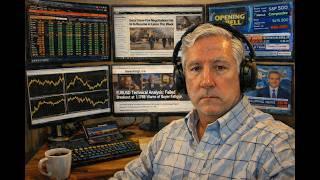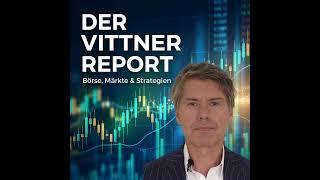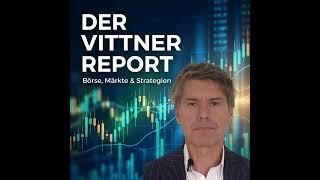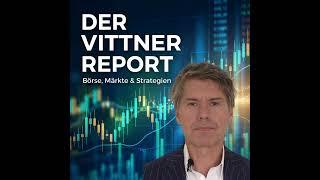| Climate activists talk a lot about following “the science” around climate change. What actually is the science and how is it calculated? Read more here: https://econ.st/3ci07Qy Find our school briefings series here, including our recent climate explainers: https://econ.st/2Zeo7kV Sign up to receive The Economist’s fortnightly newsletter to keep up to date with our latest coverage on climate change: https://econ.st/3dZrKz6 Find The Economist’s most recent climate-change coverage here: https://econ.st/2X74b0w Covid-19 presents an opportunity for countries to flatten the climate curve: https://econ.st/3em6YKn Read about the pressure to make the post covid-19 rebound green: https://econ.st/2XA7NbF Why the world urgently needs to expand its use of carbon prices: https://econ.st/2ZJdtmu Humans’ dependence on fossil fuels is heating up the planet at an unprecedented rate. Governments and policymakers must take urgent action. That action is guided by what science says about the impact of climate change on the Earth. This is how it’s calculated. This is Vilhelm Bjerknes. At the end of the 19th century he devised formulas which linked the flow of heat, water and air. 50 years later his ideas were the basis of the first computer model of the atmosphere. And modern-day weather forecasting was born Today’s climate models are the highly evolved descendants of that original, except the computers are some 25trn times faster. Here’s how it works Scientists divide the Earth’s atmosphere into a grid of hundreds of thousands of cells, in stacks like a skyscraper. The model used by the Met Office, Britain’s national weather service for example, uses stacks which are 85 cells high The models then calculate how energy, air and water vapour flow through each cell over a given time period. While weather forecasting takes a snapshot of the atmosphere at a given time and predicts what will happen over the next few days Climate models consider the atmosphere’s behaviour over years and years simulating either the world as it is or the world as it might be. For all their complexity, these models have limitations. This means the models often struggle to capture details like cloud cover. And clouds play a key role in climate. As greenhouse gases make the atmosphere warmer they change the amount of water vapour it can hold and how air rises and falls. That in turn changes the amount and character of cloud cover. Depending on where clouds form, they can either trap sunlight which warms the planet, or reflect it back into space, cooling it. And some processes which govern cloud formation work on a very small scale. Dozens of these models exist, run by teams all over the world Every few years the models are brought together fed standardised questions and then their results are compared. This helps scientists understand the strengths and weaknesses of different climate models, and improves them. Of course, it’s impossible to assess the models’ future projections. But what researchers can do is compare the success of models from previous decades. A recent report compared the models from the 1970s to the 2000s. The climate models are getting increasingly complicated capturing more aspects of the Earth. But there is one element that is impossible to model. And it is the biggest contributor to climate change. Instead, scientists take simplified results from these climate models and run them through economic models. In 2013 scientists used these models to examine the effect of different climate policies on the future temperature of the planet. The first looked at what would happen if there was continued large-scale use of coal. The second, if there was continued use of fossil fuels but some use of renewable energy. The third, if there was a much higher uptake of renewable energy. And the fourth if there was a lot of use of carbon-capture technology and more land to grow biofuels. Climate models don’t predict the future and they’re not perfect. There is a long way to go before they fully represent all of Earth’s intricate processes. But for now they are the only way that scientists have of understanding how damaging an increase in carbon dioxide will be for the planet. Ultimately, the solution to climate change won’t lie inside models but rather what humans choose to do with the information they provide |
Tags:
































25 comments
Skip to comment form ↓
Harry Canary
2020-06-05 at 18:14 (UTC 2) Link to this comment
They said climate models are based on late 19th century science from Bjerknes. New climate models are coming for the IPCC in 2022, that include solar particle forcing and other space weather variables for the first time. We have to wait and see what they come up with. There is a long way to go in understanding natural climate variability.
Carter
2020-06-05 at 23:33 (UTC 2) Link to this comment
6:00 is an excellent point — only the most extreme response to climate change would bring us less than 2 degrees above pre-industrial levels. Also do his eyebrows wrap around the sides of his eyes and come up underneath?
Terry Moore
2020-06-06 at 06:46 (UTC 2) Link to this comment
By feeding incomplete data and misinterpreting the computer readout!
David Pring
2020-06-08 at 02:20 (UTC 2) Link to this comment
That dude's real name should be Harry Cheek.
Katerina Kouzalou
2020-06-08 at 17:58 (UTC 2) Link to this comment
As i read so wear the milakovic cycle its a time now we have very hot but we gona have a small ice age we having ones sing in 1776 and its gona start again a heavy winder its gona be so cold may can be -70 and because of that these scenario can continual till tropical rain forests. The say Russian scientists
croc adile
2020-06-10 at 23:19 (UTC 2) Link to this comment
Yep. The models of "science", economic, viruses, etc are designed to support a predefined narrative for a predetermined agenda – usually for the love of money, which is why you see them lying and cheating and demonizing anyone who opposes the narrative. The ones pushing it never lead by example because they are hypocrites taking advantage of the poor and the weak – those are the ones these policies affect the most.
Glenn Lacco
2020-06-09 at 06:22 (UTC 2) Link to this comment
"climate change" is still selling news? The Economist must be getting desperate
DHANUSH
2020-06-09 at 06:36 (UTC 2) Link to this comment
It's not the reason buddy
..people living in global north like you don't want to change your life style and hyper consumerism so you are pretending to be delusional jus like that orangeguttan TRUMP ..
maragani sasank sai
2020-06-10 at 06:01 (UTC 2) Link to this comment
Heat,water and eeeeeyyy
croc adile
2020-06-10 at 23:15 (UTC 2) Link to this comment
Now we have entered into a 40-60 year cooling cycle. In the 70's the same "science" and "scientists" use fear tactics to convince people of the Coming Mini-Ice Age. Models have so many flaws, but they are engineered to support a predefined narrative and agenda. People really have a difficult time with discernment.
Olive Ridley
2020-06-15 at 23:22 (UTC 2) Link to this comment
You're an idiot.
croc adile
2020-06-10 at 23:20 (UTC 2) Link to this comment
Much consensus and very little science. Revenue based on fear mongering is very profitable.
Mr. ForWard
2020-06-16 at 12:01 (UTC 2) Link to this comment
Well, I think USA can't get it because the editor said, "Kilometers" Instead???
vechnoezabvenie
2020-06-17 at 08:23 (UTC 2) Link to this comment
To all people who will use this to deny anthropogenic climate change threat: yes, models are just models, and yes, they cannot predict everything accurately; but none of that means there will be NO human contribution to climate change. Regardless of Sun activity and other factors we cannot control, what we CAN control is the amount of substances we emit into the atmosphere. Their properties are known, their concentration in the air is quantifiable, it is a known fact that the composition of the atmosphere has been changing, and anyone with a liitle understanding of chemistry knows that its behaviour must somehow change as a consequence. This is not about warming or cooling, this is about any kind of consistent deviation from natural behaviour that human activity is causing. Any change of that kind will inflict further damage on nature on all levels, including water, soil, biological communities and us. Trying to dismiss that is just dishonest.
Geek X
2020-07-20 at 17:23 (UTC 2) Link to this comment
Climate Change is a lie; just like Greta’s tears.
Guilherme Gomes
2020-06-18 at 15:48 (UTC 2) Link to this comment
In 1940, life expectancy was 50 years. The best measure.
Martin A
2020-06-19 at 09:46 (UTC 2) Link to this comment
Give up the propaganda, this has been round the block many times. Man cannot control and has not controlled the climate. Who is to gain if we belive this. Follow the money and you know who funds this propaganda.
Kloko loko
2020-06-21 at 22:55 (UTC 2) Link to this comment
What money? Fossil fuel money?
Nicholas McCarthy
2020-07-17 at 05:53 (UTC 2) Link to this comment
1:43 Bro……what?
Geek X
2020-07-20 at 17:17 (UTC 2) Link to this comment
You calculate Climate Change by first inventing bogus science, then use the mathematics of liars – STATISTICS – to justify your science.
Geek X
2020-07-20 at 17:28 (UTC 2) Link to this comment
The science of Climate Change is based on emotional blackmail and guilt. Nothing else about Climate Change science will stand up to robust scrutiny.
Geek X
2020-07-20 at 17:29 (UTC 2) Link to this comment
This is zombie science for the zombies of the human race.
Geek X
2020-07-20 at 17:42 (UTC 2) Link to this comment
The Climate Change Cult can contribute to reducing CO2 gas emissions if they all stopped breathing.
Geek X
2020-07-20 at 17:44 (UTC 2) Link to this comment
Manmade Climate Change is leftwing conspiracy.
andrew purcell
2020-08-10 at 01:27 (UTC 2) Link to this comment
I'm tired of warm winters!!!!!!!!!!